
Table of Contents
- What is Keyword Difficulty?
- How is the Keyword Difficulty Score Calculated?
- How to Use Keyword Difficulty in Your SEO strategy?
- Key Takeaways
- Conclusion
- FAQs
Several misconceptions are still prevalent regarding keywords and Search Engine Optimization (SEO). But the major challenge for most brands and marketers is understanding that while search volume and impressive numbers are important, there is one equally important aspect that’s often ignored – keyword difficulty.
With increasing competition in the digital space and raising awareness of the finer aspects of SEO, keyword difficulty is also being closely monitored. Given the high level of competition vying for the top slot, the term essentially defines how hard it is to get a high ranking for a particular keyword.
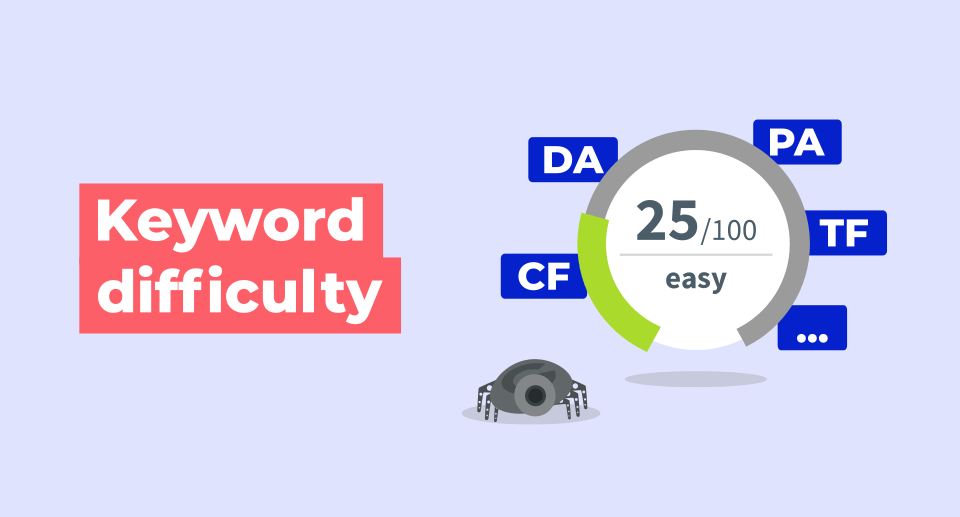
Therefore, understanding keyword difficulty is crucial to plan the website’s SEO approach and realign it if an exceptionally high-performing keyword may not exactly represent all that the website stands for. This guide will look at what keyword difficulty is, how it is measured, and its use in conducting effective keyword research.
What is Keyword Difficulty?
Keyword Difficulty, also known as ‘SEO difficulty’ or ‘Keyword Competition Score’, is an SEO metric that defines the competition and difficulty for getting a high ranking for a particular keyword.
It essentially allows SEO specialists and marketers to understand the effort it would take for the keyword to rank on the first page of Google or other search engines.
Using this metric, marketers can decide whether to spend the budget and resources on a particular keyword or if it can pivot their approach to focus on a keyword that is similar, relevant, and with lower competition.
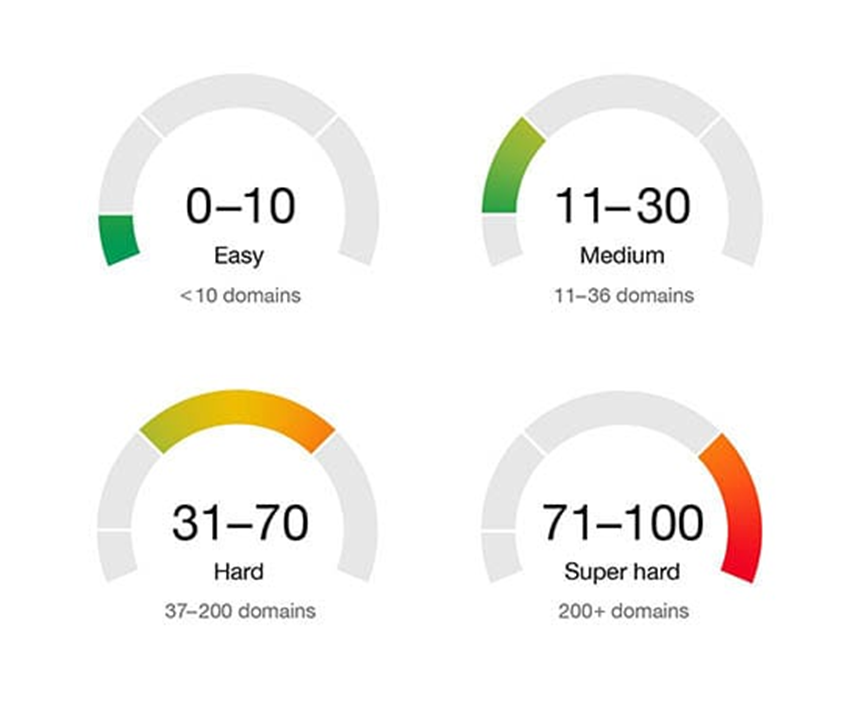
Many factors determine keyword difficulty, primarily the quality of your competitors’ (external) and the quality of your pages for the particular keyword (internal).
In SEO, this metric measures the number and quality of backlinks to the top ten pages in the Search Engine Results Page (SERP), helping understand how low or high the competition is.
The higher the keyword difficulty score, the harder it will be to rank your website on the first page in SERP, which is why keyword difficulty plays a vital role in SEO.
How is the Keyword Difficulty Score Calculated?
To calculate keyword difficulty score, one can use multiple tools like:
- Moz Keyword Difficulty Checker
- Small SEOTools Keyword Difficulty Tool
- KW Finder Keyword Difficulty Tool
- Ahrefs Free Keyword Difficulty Checker
Since each tool uses different parameters and formulas to score, there are slight variations depending on the one you use. However, the fundamental factors contributing to the Keyword Difficulty score remain the same. The key aspects that are considered when calculating Keyword Difficulty include:
Content quality of your page or website
The critical factor determining keyword difficulty score is your website’s page content. Pages with high-quality content relevant to a particular keyword are easy to rank, which is the prime factor to consider. According to Google’s E-A-T algorithm (Expertise, Authoritativeness, and Trustworthiness), content that scores well has a better chance to rank on the top pages. Make sure you’re writing SEO articles of superior quality.
Quality of backlinks & referrals
The number and quality of backlinks determine the credibility of a website or web page and are thus a key factor for keyword difficulty. If the competitors have high-quality backlinks from diverse and reputed pages, they will rank higher for the particular keyword, making it challenging to compete.
Domain authority
The Domain Authority Score is the metric that scores a website’s reputation and content in terms of usefulness, relevance, and expertise in a particular subject or industry.
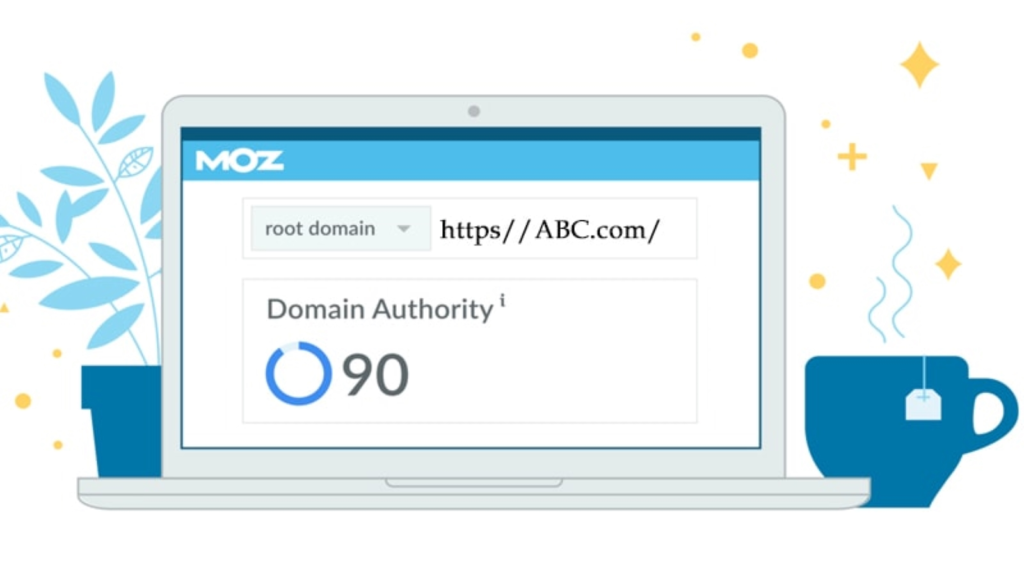
Websites with higher domain authority rank are favored by search engines and considered the authority for a specific keyword. So, if the domain authority scores of the competitors are high, it is difficult for a new entrant to get a high ranking for that keyword.
Competitors
The objective of any SEO strategy is not just to be on top but also to outrank the competition. Often, competing websites will bid and even replicate the strategy of their closest competitor in a bid to surpass them, but as keyword difficulty increases, so does competition. And in most cases, your competitors are not just the ones you anticipate, but even those you may never expect.
There are typically three competitors when it comes to SEO:
- Industry competitors: other websites or brands that provide similar services, products, or content to the one you have
- SEO Competitors: websites or different domains that have similar content, target audience, and keyword profile
- Keyword Competitors: competitors who are ranking for a particular keyword that you wish to target
The more competitors vying for a specific keyword, the harder it is to rank for that particular keyword.
Search intent
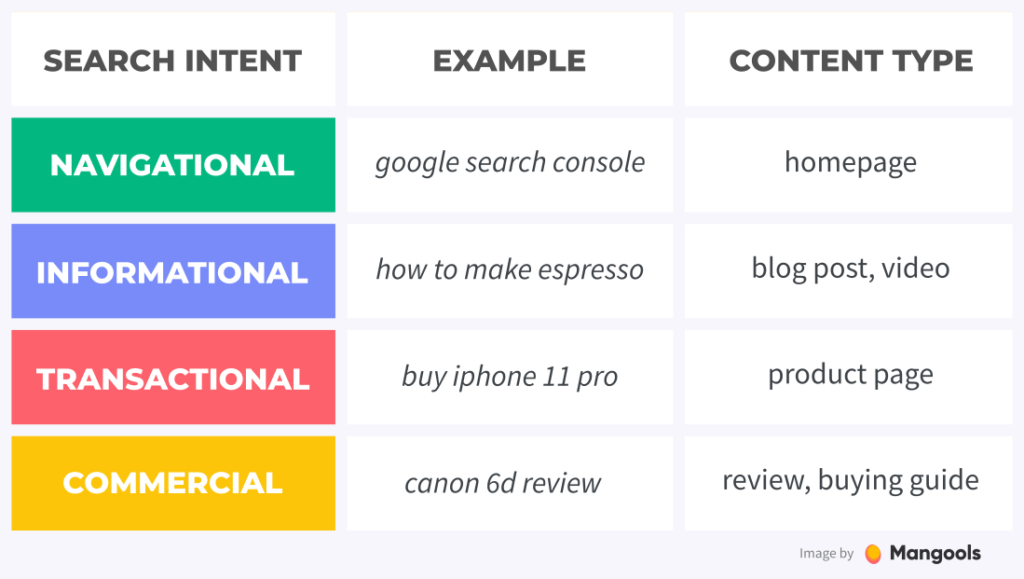
Finally, a significant factor that will impact the keyword difficulty score is the search intent it comes with. Search intent is the type of content the user is trying to find when they enter a particular keyword. In most scenarios, these can be categorized as:
- Informational content: Where the user is looking for information about a specific topic, to educate or understand a particular topic
- Commercial: Where the user is looking for a purchase or commercial information on the product or service that they are interested in
- Transactional: Where the user is looking to buy a particular product or service
- Navigational: Where the user is searching for a keyword to find a specific page
Your website will rank higher for similar search intent depending on the type of content you create and the purpose.
For example, someone searching about ‘Big Data is more likely to be looking for information that helps them understand the technology, while those searching ‘Big Data Services’ or ‘Big Data Service Providers’ are looking mainly for service providers in this space.
If your content is focused on the latter, but your keyword target is just ‘Big Data’, the chances of your page ranking is low despite having good-quality content.
How to Use Keyword Difficulty in Your SEO strategy?
Now that we have understood how keyword difficulty works let us look at its impact on SEO strategy. For a successful SEO strategy, it is essential to use keyword difficulty score as the basis of your decision and use it along with search volume, search intent, relevance, and other metrics that also play a role.
When using keyword difficulty score for your SEO, make sure also to follow these recommendations for a stellar SEO strategy:
SEO is a long-term game
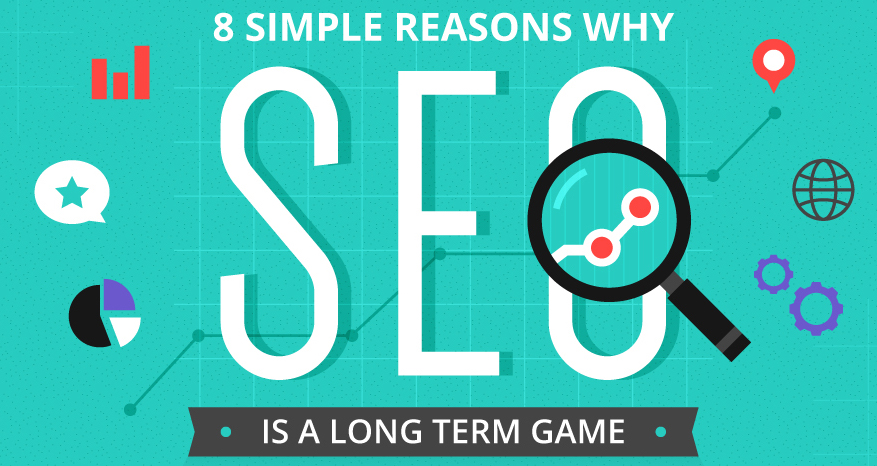
A keyword that is easy to rank today may be challenging to rank in the future, and so is the case with the difficult ones. So instead of making a decision based purely on Keyword Density Score, analyze how important the keyword is to your brand. The ideal keyword is popular (high search volumes), relevant (applies to the content or brand), and matches the audience’s search intent.
High difficulty need not always be a deterrent
Often, the brand, service, or content you are creating is apt for a keyword with high competition and may be very difficult to rank.
Create exceptional content quality
With high competition comes the need for authoritative and quality content. So, instead of using content just to rank higher, optimize content to be helpful, detailed, and highly authoritative. This will help you rise through the ranks and better appeal to the target audience.
Focus on niche topics & pages
The keyword and website content is specific and provides detailed information, which appeals to a niche and targeted audience.
We highly recommend using focus keywords and long-tail keywords for this scenario. It helps you outrank the competition and get a niche standing, increasing your website’s ranking.
Gain quality backlinks
Ensure that your page or website is getting a high number of backlinks from top-ranking pages, which will also help your overall domain authority.
Balance easy keywords & hard-to-rank keywords
Smart SEO strategies balance easy keywords with hard-to-rank keywords. Building out a keyword table that includes high-ranking and easy-ranking keywords will help you create a broad strategy for your keywords.
Using long-tail keywords, brands can break through even in highly competitive keyword space, while the easy to rank keywords play the role of enabler if they are in a similar content cluster.
Key Takeaways
- Keyword Difficulty, also known as ‘SEO difficulty’ or ‘Keyword Competition Score’, is an SEO metric that defines the competition and difficulty for getting a high ranking for a particular keyword.
- Keyword Difficulty Score depends on the content quality of your page or website, quality of backlinks and referrals, domain authority, competitor, and search intent.
- For a successful SEO strategy, it is essential to use keyword difficulty score as the basis of your decision and use it along with search volume, search intent, relevance, and other metrics that also play a role.
Conclusion
To summarise our entire blog, we talked about the importance of keyword difficulty in determining the right keyword to be used.
However, it is not just the keyword difficulty score that a brand or marketer should focus on. They should determine the right keyword based on multiple factors like search volume, intent, and relevance.
Whether it is an organic or paid search that you are targeting, the ideal goal of your SEO process is not just to gain a high ranking and audience but also to help the audience find the correct information.
By using long-tail keywords and focusing on volume, intent, and keyword difficulty, you can successfully build the proper foundation for your SEO and enable it to grow over time while ensuring that your niche audience can easily find you.
FAQs
Keyword Difficulty, also known as ‘SEO difficulty’ or ‘Keyword Competition Score’, is an SEO metric that defines the competition and difficulty for getting a high ranking for a particular keyword.
It essentially allows SEO specialists and marketers to understand the effort it would take for the keyword to rank on the first page of Google or other search engines.
A good Keyword Difficulty Score is lower than 70%. Between 30% – 70%, the keyword is hard or moderately difficult to rank but has good search volumes, so it has the interest of a few niche bidders.
Below 30%, the keyword is easiest to rank but may or may not have a steady search volume, the reason why it is not in the interest of most businesses. However, if you have a niche, this can be an apt option for ranking high on the SERP.
A keyword score below 10% is the easiest to rank or has a low keyword difficulty score.
Although focusing on the lowest keyword difficulty score can be tempting, the ideal approach is to decide based on multiple factors.
The keyword difficulty score, the search volume, and the keyword’s relevance to the website or brand are equally important. One should consider all factors when determining the right keyword to use.
Many factors determine keyword difficulty, primarily the quality of your competitors’ (external) and the quality of your pages for the particular keyword (internal).
If you do not want to get into the technicalities, the easiest way to understand keyword difficulty is by the number of search results.
Results that have an extremely high search volume will mostly be the ones that are hard to rank, while those with minimum results are easy.
Remember to also go with niche and relevance, as that will help determine the chances of your website ranking higher for a particular keyword.
Example: Here, the keyword has received extremely high search volume in a short duration, which has increased competition and will be challenging to get a high ranking.
Any successful SEO strategy must consider the keyword difficulty and the keyword volume. The ideal keyword is relevant and has a high keyword volume and a decent difficulty score (between 30% and 70%).
Latest Blogs
Learn how to rank on AI search engines like ChatGPT, Perplexity, and Gemini by optimizing your content for authority, structure, and relevance. Stay ahead in AI-driven search with this strategic guide.
Explore the best healthcare SEO services for your medical practice. Improve online visibility and effectively reach more patients in need of your services.
Discover top social media agencies specializing in banking solutions, enhancing financial services and driving engagement.
Get your hands on the latest news!
Similar Posts

B2C Marketing
5 mins read
Top Choices for Best Content Marketing Services in B2B Industries

Artificial Intelligence
5 mins read
How A Lead Generation Specialist Can Use AI-Powered Content Funnels to Drive Conversions

Artificial Intelligence
4 mins read